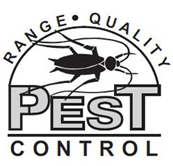Planting vegetables and fruits in your garden is becoming increasingly common, particularly as more and more households want to eat organically. You will see just what is going into your fruits and vegetables if you have your organic greenhouse. This includes not using pesticides or herbicides and only fertilizing the crops with renewable sources. One of the most common concerns about organic gardening is the lack of pest control Pest Control Chelmsfordoffers a better way for pest control. With that in mind, let’s focus on insect pests that can damage your tomatoes, vegetables, and other crops.

Organic Pest Control:
When it comes to organic pest control, it is better to be cautious rather than reactive. Until planting crops, it is a smart idea to sow certain plants that automatically repel those pesky insects. Marigolds, for example, are effective at repelling aphids, nematodes, and a variety of other pests. Whiteflies, cabbage loopers, cabbage maggots, corn earworms, whiteflies, tomato hornworms, and small whites have all been known to be repelled by thyme. Aphids, slugs, and snails are all deterred by fennel. Chives are not only delicious but they are also known to repel Japanese beetles and carrot flies from your garden. The helpful plants listed above are only a handful of the many plants that can help you keep pests out of your greenhouse. Place the vegetables in the garden after these plants have been planted.
Insects of various kinds will feed on the vegetables and fruits in your garden. The kinds and numbers of insects in your garden can vary greatly depending on where you live. Some species will be more prevalent in colder temperatures, while others will be more prevalent in colder climates. Ants, aphids, green vegetable bugs, worms and caterpillars, mealy bugs, spider mites, slugs and snails, squash bugs, stink bugs, thrips, and whitefly are some of the most common garden pests.
Some Home Remedies For Pest Control:
The pests mentioned are only a few of the vexing creatures that can wreak havoc on your garden if left unchecked. With organic gardening, the key aim is to do your utmost to remove ants, bugs. Unfortunately, these pests will often neglect the beneficial plants and instead threaten your valuable crops. When this happens, it’s time to take a defensive stance and strike them hard with those natural remedies. Let me share a couple of my favourite DIY organic insecticides that you can make at home for the sake of brevity.
If you have an ant problem, combine 10 drops of citrus oil, one teaspoon of cayenne pepper, and one cup of warm water. Shake well before spraying the affected area. Last year, I used this tool to get rid of pine needle worms that were wreaking havoc on my conifers. The argument is that this concoction can be used to repel a wide range of pests. Another successful combination. Remove any remaining strong chunks of garlic with cheesecloth or strainer. Combine the garlic puree, 4 tablespoons mineral oil, and 1 or 2 teaspoons cayenne pepper in a spray bottle. Shake well and set aside overnight. Even, before using, give the jar another good shake. It is safest to spray this mixture on your plants in the evening after the heat of the day has passed.
